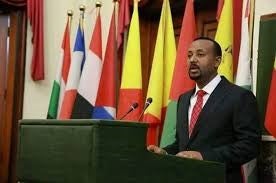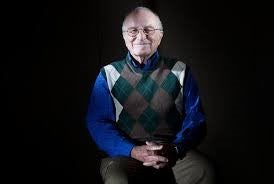By Paul Heidebrecht
I spend a lot of time thinking about the role that institutions and systems play in the development and impact of technology, and the ways that our technologies come to shape these institutions and systems, not to mention our norms, cultures, and the way we think. At the same time, I also believe that individuals can make a difference through the choices we make and the ways we participate in our institutions and systems. I’ve had several reminders of this in recent weeks!
On Friday, October 11 (not October 4 as previously indicated in this blog!), the Nobel Peace Prize for 2019 was awarded to Ethiopian Prime Minister Abiy Ahmed Ali. In their announcement, the Norwegian Nobel Committee cited “his efforts to achieve peace and international cooperation, and in particular for his decisive initiative to resolve the border conflict with neighbouring Eritrea.” They also sought to “recognise all the stakeholders working for peace and reconciliation in Ethiopia and in the East and Northeast African regions.”

Prime Minister Abiy is an interesting individual on a number of levels. He joins a select group of remarkable African political leaders who have become Nobel laureates, including the South African anti-apartheid leader and eventual President Nelson Mandela, UN Secretary General Kofi Annan, and Liberian President Ellen Johnson Sirleaf. A former army intelligence officer, Prime Minster Abiy was born to an Orthodox Christian mother and a Muslim father.
What really stands out to me though is his educational background: he earned a Bachelor's degree in computer engineering before going on to complete Master’s degrees in business administration and transformational leadership, capped off with a doctorate from the Institute for Peace and Security Studies at Addis Ababa University. His dissertation, completed the year before he became Prime Minister, was entitled "Social Capital and its Role in Traditional Conflict Resolution in Ethiopia.”
The day before this remarkable engineer/peacebuilder was honoured, a remarkable doctor/inventor named Paul Polack died at the age of 86. Born in Czechoslovakia, Polack came to Canada as a refugee and trained to be a physician at Western University, before practicing psychiatry for several decades in Colorado.

A trip to Bangladesh and connections to international development practitioners (including some prominent Mennonites!) sparked a lifelong focus on helping the world’s poorest people create small businesses, and Polack became a social entrepreneur long before the term was popularized. He started several nonprofits in the pursuit of that mission, including International Development Enterprises (now known as iDE), D-Rev, and Windhorse International. Technologies developed by these ventures include foot-powered water pumps, using batteries to convert salt into chlorine to disinfect water, and an affordable hospital lamp for treating neo-natal jaundice.
The key insight that informed all of Polack’s pursuits was the importance of listening to people. He was guided by the principle that, as noted in a tribute on the iDE website, you shouldn’t design anything until you have talked to at least 100 potential users. More wisdom like this can be found in his books Out of Poverty: What Works When Traditional Methods Fail and The Business Solution to Poverty: Designing Products and Services for Three Billion New Customers.